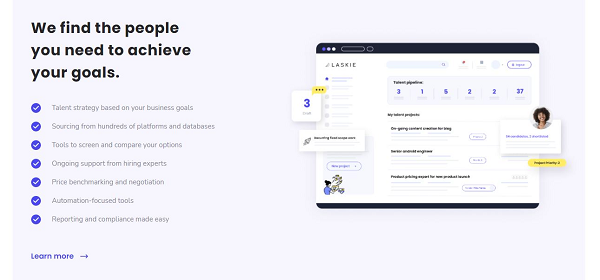Elon Musk’s plans to transform Twitter into an ‘everything app’ are slowly taking shape, with Twitter (or more specifically, parent company X Corp) acquiring job-matching start-up Laskie for an undisclosed sum.
As reported by Axios, Laskie, which describes itself as ‘a job-matching platform where tech jobs apply to candidates’, enables hiring managers to connect with eligible tech industry candidates to fill open positions.

Twitter has reportedly made a cash and stock offer for the company, which will seemingly see Laskie’s platform integrated into Twitter, as Musk and Co. look to branch out into more areas, and build on Twitter’s offering in new ways.
Twitter, which also just hired a new CEO, is still looking to establish a definitive path forward under Musk’s ownership, with Musk spending the majority of his time in his initial months at the app focused on cutting costs, in order to get the company back on firm financial footing. Musk has also implemented some quick-hitting revenue strategies, like selling verification ticks, though none of his early initiatives seem to have made any significant impact in the broader scheme.
The next phase, then, will involve re-building Twitter in a new image, which will seemingly include a bigger focus on video content, and original programming from big names, while also providing more opportunities for creators, and eventually, more kinds of tools and options to facilitate expanded usage.
Which could also include job listing elements, veering into LinkedIn territory. And maybe, dating?
Interesting idea, maybe jobs too
— Elon Musk (@elonmusk) May 10, 2023
Musk’s ambitious ‘everything app’ plan refers to his longstanding concept of a social platform that would also facilitate simple, in-stream payments, and then incorporate additional functionalities from there.
The concept mirrors how messaging platforms like WeChat have become essential utilities in China, used for every kind of transaction and interaction that you can imagine – though thus far, no Western social media app has been able to get similar type usage trends off the ground, despite various efforts.
Meta, for example, has tried to increase the utility of both Messenger and WhatsApp in different markets, with limited success. Regional regulatory requirements have been the most significant impediment to Meta’s expanded payments plan, while user interest has also remained low, despite added functionality (and worth noting, Meta has also tried jobs and dating elements).
Will Musk’s ‘everything app’ plan fare any better?
Given that it’s Elon Musk, it’s hard to bet against him, based on his track record in especially difficult industries. But it does seem like most of these concepts have been trotted out before, and none have gained much traction with users.
That doesn’t mean that they won’t work, but based on history as evidence, the tea leaves are not looking great for these add-on projects.
Maybe those past experiments were too far ahead of their time, and maybe now, with a younger generation that’s grown up on social media, they’ll see more take-up as a result.
Or maybe Elon has an alternate plan to enact his vision.
It seems that we’ll find out, with Twitter making moves to build a framework for its next stage.



